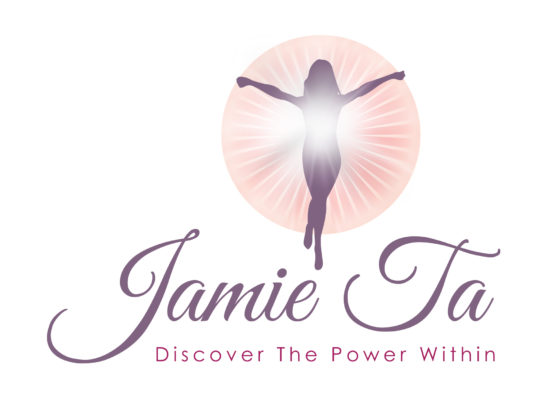How can sunscreen, a product claiming to help prevent the risk of cancer actually be increasing the risk of cancer? Sounds absurd? Well, the truth stinks! Sunscreen is a very well marketed product driven by the media to protect yourself and your family from skin cancer. But how much do we know about the sun, UVA and UVB rays? What do these sunscreens really protect us from?
The rates of skin cancer has tripled in the past 35 years and so has our consumption of sunscreen. There is no proof that sunscreen can prevent most skin cancer, but it can be one of many tools that can help prevent sunburn if used correctly.
IS SUNSCREEN A NECESSITY?
Maybe? Well, if you have to work outdoors, or you’re taking your whole family out to the a theme park etc and can’t be safely exposed to the sun, then yes sunscreen is a necessity. But you certainly don’t want to use most of the commercially available sunscreens under any condition as they not only block your body’s ability to produce vitamin D, they’re also loaded with toxic chemicals.
The fact is, getting safe sun exposure every day is actually one of the best things you can do for your health! Sun exposure allows your body to naturally produce your own supply of vitamin D, and experts agree that this is the best form of vitamin D available.
**We just need to be careful not to get sunburned, because getting burnt is never a good thing!**
THE BENEFITS OF VITAMIN D
- Support your cardiovascular health
- Enhance your muscle strength
- Help produce optimal blood pressure levels
- Help maintain a healthy immune system
- Support healthy kidney function
- Promote healthy teeth
- Help keep your bones strong and healthy
SUN EXPOSURE CAN PROTECT YOU FROM CANCER
Over the years, several studies have already confirmed that appropriate sun exposure actually helps prevent skin cancer. In fact, melanoma occurrence has been found to decrease with greater sun exposure, and can be increased by sunscreens. One such study revealed that melanoma patients who had higher levels of sun exposure were less likely to die than other melanoma patients, and patients who already had melanoma and got a lot of sun exposure were prone to a less aggressive tumor type.
Of course we must be sensible about sun exposure and balance between getting enough sun to getting sunburned. Staying indoors all the time, or being completely covered from head to toe when outdoors will likely make you Vitamin D deficient!
ULTRAVIOLET LIGHTS
Ultraviolet light from the sun comes in two main wavelengths – UVA and UVB. It’s important for you to understand the difference between them, and your risk factors from each. Consider UVB the ‘good form’ that helps your skin produce vitamin D. UVA is considered the ‘bad form’ because it penetrates your skin more deeply and causes more free radical damage. Not only that, but UVA rays are quite constant during ALL hours of daylight, throughout the entire year — unlike UVB, which are low in morning and evening, and high at midday. So be aware that not all sunscreens protect against UVA, which is the most harmful.
*Source: Dr Mercolas article
TOXIC CHEMICALS FROM SUNSCREENS
There are natural mineral sunscreens out there, but most of the sunscreens you purchase from your supermarket are laden with toxic chemicals. Are you ready to find out?
- Vitamin A additive, Retinyl palmitate or Retinol- studies by federal government scientists indicate that it may trigger development of skin tumors and lesions when used on skin in the presence of sunlight. There’s a possibility that it may speed up the growth of cancerous tumours when used on the skin that’s exposed to sunlight. It can cause a variety of health problems, including liver damage, brittle nails, hair loss, osteoporosis and hip fractures in older adults. Excessive vitamin A can cause serious skeletal birth defects in a developing fetus. This chemical is often found in lip products and skin lotions.
- Oxybenzone- can cause allergic skin reactions and may disrupt hormones
- Octinoxate- can cause skin allergies. Hormone-like activity; reproductive system, thyroid and behavioral alterations in animal studies
- Homosalate- disrupts estrogen, androgen and progesterone
Those are the main toxins that are commonly found in sunscreens.
FIND OUT IF YOUR SUNSCREEN IS TOXIC
The Environmental Working Group (EWG) is a non-profit organisation that empowers people through their research and education to help others live a healthier life. They have lots of studies on chemicals and toxins that are harmful for humans. Here are a couple of links that I use to find out about certain brands of sunscreen and see the safety ratings from the EWG.
- EWG’s Worst scoring sunscreen for kids: for example – Banana Boat Kids Max Protect & Play Sunscreen Lotion, SPF 100 and Neutrogena Wet Skin Kids Sunscreen Spray, SPF 70+ are among the worst kind of sunscreen you can use!
- EWG’s guide to sunscreen: Type your sunscreen into the search box to see the rating. Some Australian brands are not listed unfortunately.
*This post contains affiliate links
LOW TOXIN SUNSCREEN
Now, if you really must use sunscreen, I recommend the following:
Eco natural sunscreen
Simple As That natural face and body sunscreen
Soleo Organics Natural Sunscreen
You can buy them at Nourished Life. They have a large range of natural sunscreens.
Get Your Products from Nourished Life
RELATED POSTS
Toxic toothpaste ingredients you need to avoid: Engine degreaser? Rat poison anyone?







